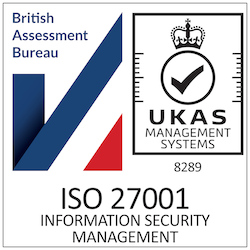Buying a brand new home is exciting, but the conveyancing process can be slightly different. Depending on the schedule of the development company, you may have longer wait times between putting an offer in, exchange of contracts, and completion. Long wait times can be frustrating, but it gives you more time to get excited and plan the interior of your brand new home!
It is essential to have a conveyancer onside from the get-go when purchasing a new build to help with any issues that may arise in the process, to work on the contract and to help work towards the completion date. As the completion date is often set by the developer, bringing in a conveyancer who understands the importance of timings is crucial.
Make an Offer
You’ve found your dream new build home, you’re satisfied with the plans of the property, and the developer’s previous work; it’s time to make an offer.
You may need to pay a reservation fee when making an offer to reserve the new build and to facilitate the legal process leading up to the exchange of contracts. This fee will be deducted from the final purchase price on completion but is non-refundable if you fail to exchange contracts, or you pull out of the sale.
Instructing a new build conveyancer
Once you’ve reserved your new home, the next step is to instruct a conveyancer. Often, the development company will recommend conveyancers who are working on the development already and specialise in new build properties, which can speed processes up and save time in the long run.
You can also research conveyancers yourself that specialise in new build properties. Here at ONP Group, we work with a number of new build developers and ensure the entire process runs smoothly from start to finish.
Utilising Your Conveyancer
As part of the new build conveyancing process, your conveyancer will typically:
- Check the planning permission
- Register the property with the land registry
- Highlight restrictive covenants
- Set out details of the lease (if appropriate)
For more information on the full conveyancing process, visit here.
Paying the Deposit
Following on from making your offer and having it accepted, it will then be time to pay the deposit. This deposit can be anywhere between 5% and 30% for new build properties. When paying the deposit, you will be asked to sign a contract prepared by the developers to agree to buy the property at the current price, and to pay the final balance at completion.
The Complication with New Builds
Mortgage lenders usually undertake a valuation before and after the completion of construction. If there is a rise or fall in property prices between this time it can make it difficult for buyers to secure a mortgage for the remaining balance, meaning you may lose your deposit due to breaching the original contract.
We urge those looking to buy New Builds to establish if the contract price is locked in at the exchange and what to expect if prices rise or fall before completion, but we can help with this.
Check for snagging
Typically, new build buyers will not be allowed to view their property until after construction has been completed and it is also typical that some new buyers will not be happy with the quality of work within the house. It is important to have snagging provision written into your contract, detail the process of what will happen with any errors or problems within the property that the builder needs to repair.
Make sure you do this snagging check before the final payment is made, as any errors after you become the legal owner these errors can be classed as habitational wear and tear.
If you are looking for a specialist new build conveyancing team to help you pursue your New Build purchase, our team at ONP can help. To get a quote from our new build team, please click here.







